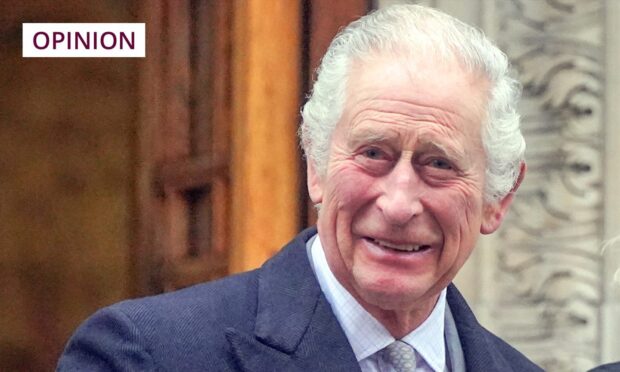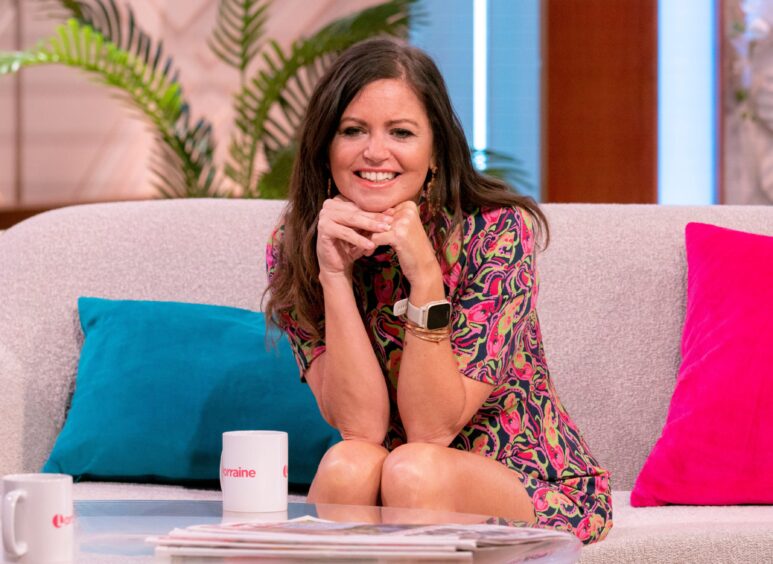Amid the hoo-ha around The Crown rattling royal family skeletons on Netflix, it’s actually the haunting first scene which sticks in my mind.
The opening shots of the debut series a few years ago; for obvious reasons today – given our concern over the King’s health.
We don’t see anyone as the opening scene rolls.
But we do hear a man’s persistent cough echoing around palatial surroundings in a castle somewhere.
A portent of some terrible tragedy to come.
It’s the late 1940s and a clock’s tick booms ominously; a symbol of time running out.
It was the late Queen’s father King George VI, of course, who was in the grim embrace of terminal lung cancer.
I’m not suggesting for a second that there is any medical correlation between George’s dire straits and the challenges facing King Charles.
And in terms of telling the public what was going on the two monarchs are worlds apart.
With George, everyone was kept in the dark over such sensitive royal matters: it’s believed that Government ministers and even the monarch himself were not aware of the true extent of his illness.
King Charles has been praised for his openness around his health
King Charles on the other hand has been praised universally for his refreshing openness about the twin threats to his health.
But the fact remains that we just don’t know what is exactly wrong with our monarch; neither the form of cancer nor its prognosis.
Fevered speculation fills a vacuum where silence reigns in royal communications about the specifics; hypothetical debates about how an abdication would work if William had to step up.
Should we all mind our business and respect his privacy?
Or do we have a right to know about the missing pieces in this jigsaw because he is our monarch, and the most prominent of all our public figures?
I listened to Labour’s Shadow Health Secretary Wes Streeting making a statement about the King as public shock over his cancer diagnosis sank in.
His opinion was highly relevant and on a different level to the predictable blandness of political leaders on such occasions – because Streeting had survived kidney cancer a couple of years earlier.
Although he was too modest to say it, the specifics of his type of cancer probably served as an inspiration to others with the same affliction.
I only parted company with him when he said the grim news showed royals were like any other ordinary family dealing with cancer, and the King could reveal as much or as little as he wished.
True they are suffering like anyone else, but they are most definitely not ordinary people by any stretch of the imagination.
He’s head of state, for goodness sake.
The point is that we were struck by the transparency of the disclosures about his earlier prostate problem and an upsurge in others seeking help for similar issues – as a direct result of the King’s brave decision to take a lead.
I have an apology here: just days before he spoke out, I wrote a column telling him to pull his socks up and badger Sunak about the poor postmasters.
Bad timing, sorry, with what was on his mind.
But having highlighted a most personal part of his body under prostate investigation, it seemed illogical – to me at least – not to follow suit with his subsequent cancer revelation.
Just for consistency, I mean.
The usually locked door on such detailed royal medical news had not quite been locked again – just left slightly ajar.
Of course we must respect anyone’s right to medical privacy.
Who am I to pontificate?
You might ask, who am I to pontificate on how people with cancer should react?
Except I do have one relevant qualification.
I was diagnosed with prostate cancer.
I’d be dead by now if my brother in Australia had not warned me to get checked after he had the same thing.
No symptoms, you see; caught early, luckily.
But I write about it to raise awareness of this specific killer rather than leaving it to float as a vague reference to cancer in general.
How can we ever forget Dame Deborah James making her journey towards death an inspirational experience for fellow bowel-cancer sufferers and raising millions for her Bowelbabe campaign?
Her fame gave her a perfect platform.
I’m not some cynical anti-royal, by the way.
I have nothing but respect for the King.
Partly because I have fond memories of us meeting at an event.
My big moment came when I was supposed to highlight a major news story we were covering on my screen as he paused on his tour, but something went wrong and the day’s fish-market prices came up instead.
He knew I was foundering, but acted as though it was the most interesting thing he’d ever seen.
Warm-hearted, but with that familiar mischievous smile and glint in his eye.
David Knight is the long-serving former deputy editor of The Press and Journal



Conversation